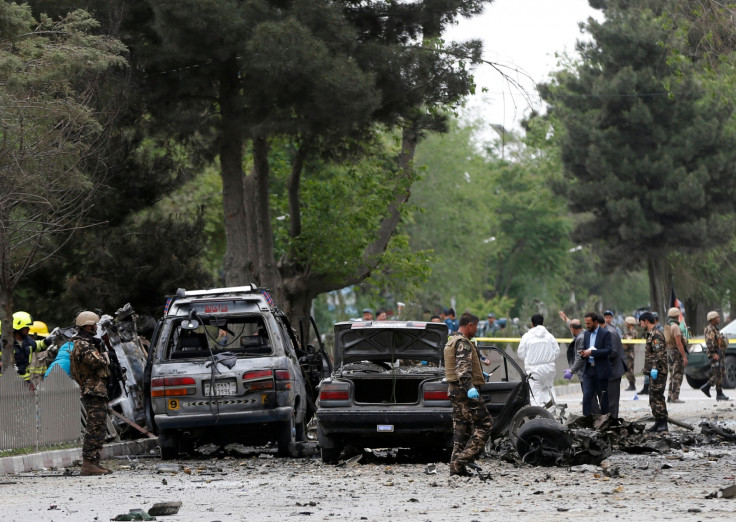Several dead in Isis suicide attack on Nato convoy in Afghan capital Kabul
The attack left eight civilians dead and wounded nearly 28 others, including three Nato coalition force soldiers.
At least eight people died and over 20 wounded in a suicide blast in Kabul, Afghanistan's capital, on Wednesday (3 May) morning. Later in the day, Isis claimed responsibility for the attack.
The blast targeted a convoy of armoured personnel carriers belonging to the Resolute Support Mission forces led by the North Atlantic Treaty Organization (Nato) in Kabul.
The Islamist group said in a statement on its Amaq news agency that their suicide bomber driving an explosives-rigged car carried out the attack on the Nato convoy in an area near the US embassy. The group also claimed to have killed eight American soldiers in the attack.
However, public health officials told Reuters that the eight killed in the blast were all civilians. Another 28 people, including three Nato coalition force soldiers were wounded in the blast.
Afghanistan's Tolo news agency had earlier reported that the interior ministry confirmed the death toll and said that the injured were taken to Wazir Akbar Khan Hospital in the capital.
The blast occurred at around 8am local time (4.30am BST) on Wednesday morning in the Macroyan area.
Eye-witnesses told Reuters that the powerful blast badly damaged or completely destroyed many civilian vehicles near the attack site. However, the heavily armoured Mine Resistant Ambush Protected (MRAP) vehicles of the Nato coalition forces suffered only minor external damage.
Tolo news reported that at least one patrol vehicle of the Nato force was damaged in the attack.
Witnesses reportedly said that traces of blood and clothing were seen scattered on the ground at the blast site.
The attack follows recent threats by local militant group, Afghan Taliban, which announced the start of its spring offensive on 28 April. The Islamist militants vowed that foreign security forces in the country will be "targeted, harassed, killed or captured" during the new offensive dubbed Operation Mansouri.

A suicide bomber targeted NATO troops convoy in #Kabul city, casualties fears.#AFG pic.twitter.com/gtJsHvitq5
— Pajhwok Afghan News (@pajhwok) May 3, 2017
Hospital source says 5 killed and 25 wounded in #Kabul suicide attack, today morning near to #US embassy.#AFG pic.twitter.com/drh3aPbNb4
— Pajhwok Afghan News (@pajhwok) May 3, 2017
© Copyright IBTimes 2025. All rights reserved.





















